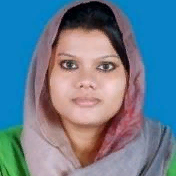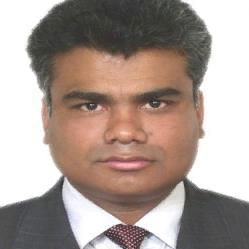International Journal of Image, Graphics and Signal Processing (IJIGSP)
IJIGSP Vol. 10, No. 10, 8 Oct. 2018
Cover page and Table of Contents: PDF (size: 1292KB)
Self-Organizing Feature Map and K-Means Algorithm with Automatically Splitting and Merging Clusters based Image Segmentation
Full Text (PDF, 1292KB), PP.63-71
Views: 0 Downloads: 0
Author(s)
Index Terms
K-Means, Self Organizing Feature Map, DB-Index, Automatic Splitting and Merging
Abstract
Image segmentation plays the significant roles in image processing, computer vision and as well as in pattern recognition. The Segmentation process subdivides an image into its constituent parts or objects, such that level of subdivision depends on the problem to be solved. The aim of image segmentation is partitioning an image within homogeneous regions that are significantly meaningful concerning some characteristics like intensity or texture. Based on clustering, a large number of researches have been done in the area of image segmentation. This paper presents an efficient image segmentation method in which the self organizing feature map (SOFM) is used for initial segmentation. After the initial segmentation, the segmented image is used by the K-means algorithm for further segmentation. Finally, the procedures for automatic splitting and merging the cluster are applied to obtain the appropriate number of segments in segmented image and as well as better segmented results. For analyzing the performance, we calculate the statistical measure named as Davies-Bouldin index (DB-index). The observation shows that, this method gives the better segmented results compared with K-Means algorithm, linear discriminant analysis (LDA) and K-Means based image segmentation method and also SOFM and K-Means based image segmentation approach.
Cite This Paper
Tamanna Yesmin Rashme, Mohammed Nasir Uddin, " Self-Organizing Feature Map and K-Means Algorithm with Automatically Splitting and Merging Clusters based Image Segmentation", International Journal of Image, Graphics and Signal Processing(IJIGSP), Vol.10, No.10, pp. 63-71, 2018. DOI: 10.5815/ijigsp.2018.10.07
Reference
[1]Debasish. C, Goutam. K. Sen, Sugata H. “Image Segmentation Techniques”.
[2]Rafael C. Gonzalez & Richard E. Woods. Digital Image Processing, Pearson Education, 3rd edition, 2008.
[3]Tian. X, and Wangsheng. Yu, “Color image segmentation based on watershed transform and feature clustering”, IEEE advanced Con. on IMCEC, Oct. 2016.
[4]Saka Kezia, I. Santi Prabha, Vakulabharanam Vijaya Kumar,"A Color-Texture Based Segmentation Method To Extract Object From Background", IJIGSP, vol.5, no.3, pp.19-25, 2013.DOI: 10.5815/ijigsp.2013.03.03
[5]Pham, V.H. and Lee, B.R, “An image segmentation approach for fruit defect detection using k-means clustering and graph-based algorithm”, Vietnam J Comput Sci, Volume 2, Issue 1, pp 25–33, Feb. 2015.
[6]Halder, A, and S. S. Hassan, 2015, “Self-organizing feature map and linear discriminant analysis based image segmentation”, In Futuristic Trends on Computational Analysis and Knowledge Management, International Conference on IEEE, pp. 394-399.
[7]Dongxiang Chi, “Self-Organizing Map-Based Color Image Segmentation with k-Means Clustering and Saliency Map,” ISRN Signal Processing, vol. 2011, Article ID 393891, 18 pages, 2011. doi:10.5402/2011/393891.
[8]T. Kohonen, Self-Organizing Maps, Springer, 3rd edition, 2001.
[9]J. Vesanto and E. Alhoniemi, “Clustering of the self-organizing map,” IEEE Transactions on Neural Networks, vol. 11, no. 3, pp. 586–600, 2000.
[10]Liu. J, Guo. L,”An Improved K-means Algorithm for Brain MRI Image Segmentation”, 3rd ICMRA, Jan. 2015.DOI.10.2991/icmra-15.2015.210.
[11]B. Subbiah, S.C. Christopher,”Image Classification through integrated K- Means Algorithm”, International Journal of Computer Science Issues(IJCSI), Vol. 9, Issue 2, No 2, Mar. 2012.
[12]Lei. J, Jiang. T, Wu. K, Du. H., Zhu. G, and Wang, Z., 2016, “Robust K-means algorithm with automatically splitting and merging clusters and its applications for surveillance data”, Multimedia Tools and Applications, Vol. 75, Issue 19, pp. 12043-12059.
[13]Deng. A, Xiao. B, Yuan. H,"Adaptive K-Means Algorithm with Dynamically Changing Cluster Centers and K-Value", Advanced Materials Research, Vols. 532-533, pp. 1373-1377, June 2012.
[14]Maulik. U, Bandyopadhyay. S, “Performance Evaluation of Some Clustering Algorithms & Validity Indices”. Journal. IEEE transactions on Pattern Analysis and Machine Intelligence, Volume 24,Issue 12, December 2002
[15]D. L. Davies and D. W. Bouldin. "A Cluster Separation Measure" ,IEEE Transactions on Pattern Analysis and Machine Intelligence, Vol. PAMI1,No.2,1979,pp.224–227.
[16]Kaur. A, Kumar. R, Kainth. K, “Review Paper on Image Segmentation Techniques ” ,Journal of ARCSSE,Volume 6, Issue 7, July 2016.
[17]Er. Anjna, Er. R. Kaur, “Review of Image Segmentation Technique”, Journal of ARCS, Volume 8, No. 4, May 2017.
[18]D. M. Ristić, M. Pavlović, and I. Reljin, “Image segmentation method based on self-organizing maps and K-means algorithm,” Neural Network Applications in Electrical Engineering (NEUREL '08), pp. 27–30, Belgrade, Serbia, Oct. 2008.
[19]Yu. H. Wang, “Tutorial-Image Segmentation”, Graduate Institute of Communication Engineering.
[20]H.D. Cheng, X.H. Jiang, Y. Sun, et al. “Color image segmentation: advances and prospects”. Pattern Recognition, 2001, pp. 2259- 2281
[21]Haykin. S, 2003, “Neural Networks & Learning Machines”, PHI Learning Pvt. Ltd.
[22]B.Sathya, R.Manavalan., 2011,” Image Segmentation by Clustering Methods: Performance Analysis” Volume 29– No.11, September 2011.
[23]GONZALEZ, R. C., WOODS, R. E., & EDDINS, S. L. “ Digital Image Processing Using Matlab”, United States: Gatesmark Publishing, 2009.

